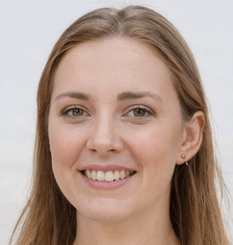- “The most commonly used way to measure poverty is based on incomes or consumption levels. A person is considered poor if his or her consumption or income level falls below some minimum level necessary to meet basic needs. This minimum level is usually called the ‘poverty line.' ” (The World Bank Group, 2002)
- The World Bank sets two “income poverty” lines: living below $2 a day and living below $1 a day.
- In sub-Saharan Africa, three out of four people live on incomes of less than $2 a day. Two out of four — half the population — have less than $1 a day to survive.
- Subsistence farming, trading goods for other goods, and sharing within extended families and communities have been some of the ways Africans have survived on the lowest incomes in the world. Mere survival, however, has not been enough. Experts view income generation, especially among women and the rural poor, as a key to Africa's more prosperous future.
Oil for cooking selling like got cakes
n the mid-1980s, an engineer tinkerer from Vermont, living in Tanzania, developed an experimental manual press that could extract edible oil from sunflower seed. Little did he know that within 15 years, his invention would become the foundation for one of Africare's most successful programs and help create income-generating businesses for thousands of Africa's rural subsistence farmers.
Africare's “edible oil” program began more than 10 years ago in the Republic of Zambia, in Southern Africa. The idea was to increase employment opportunities in rural areas, particularly for women, and at the same time create a source of affordable, nutritious cooking oil.
The edible oil program did that, and more.
Africare field staff began by identifying groups in remote areas of Zambia who would benefit from producing their own cooking oil using locally grown sunflowers. Africare trained the villagers to operate and maintain the presses and to market and manage their new businesses. Using Africare's revolving credit program, villagers purchased the presses and starter bags of special sunflower seed: a type that tolerated drought and produced a higher ratio of oil than the variety commonly grown for livestock feed.
From one district to another, and into the neighboring countries of Zimbabwe and Mozambique, word spread. Farmers were soon earning income, increasing the size of their fields to grow even more sunflowers and seeing their livestock grow healthier from eating the mashed sunflower shell cakes (a byproduct of the pressing operation). It seemed that all kinds of people could successfully produce the high-quality cooking oil: Men, women, married and widowed heads of households, community groups and co-ops took advantage of the program. For example —
- The members of Misisi Compound Widows Group, residents of Lusaka, Zambia, had all lost their husbands to AIDS. All were left with families to support and all were poor. Their oil production business has created enough profits that they have been able to supply high-quality oil, diversify into other small businesses and donate nutrient-rich oil to nearby families in need.
- A subsistence farmer in the Mt. Darwin district of Zimbabwe could not grow enough maize, cotton and groundnuts to support his family, which included 26 children. After purchasing one press and attending Africare's business management classes, he was soon producing enough sunflower oil and making enough profit to purchase three more presses. He continues to earn substantial income, and the business keeps his entire family employed.
Over the course of a decade, Zambians in six provinces bought more than 2,000 hand-operated presses for making cooking oil and more than 150 tons of sunflower planting seed. These businesses provided owners with net incomes of more than twice the annual average. The program also resulted in a 30 percent increase in sunflower production.
In Mozambique, Africare has combined oil production with nutrition education. In the Manica province, 9,000 Mozambican farmers are now cultivating oil seed and another 73 rural entrepreneurs are operating the presses.
In Zimbabwe, several hundred farmers spanning seven districts of the Mashonaland and Matebeleland provinces have participated in the program. More than 200 jobs were created. Virtually everyone has done well.
The project has become completely self-sustaining in Zambia, where private African companies continue to manufacture and sell the presses and local farming cooperatives keep press owners supplied with hybrid seed for planting as well as surplus seed for crushing. Within a few years, the Mozambican and Zimbabwean projects will become self-sustaining, too.
Other Income-Generating Projects
- In Nigeria, 100 girls and women started or expanded small businesses of their own with training and low-interest credit from Africare.
- Africare's literacy and management skills training enabled members of a women's vegetable cooperative in Niger to better market their crops.
- In the Thyolo district of Malawi, in Mali, and in Zambia's Eastern province, Africare's rural credit programs enabled several hundred small-scale entrepreneurs to build their businesses.
- Several hundred historically disadvantaged Namibians entered their country's corporate mainstream through Africare's management training and executive internship programs.
- More than 60 young men and women, who had dropped out of school in Tanzania, have learned how to make leather products at the Arusha Leather Center, with help from Africare. They are completely self-supporting now.

Barbara Meier schreibt seit vielen Jahren für die NPAlliance Ratgeber und Testberichte. Dabei legt sie großen Wert auf die Ausführlichkeit sowie Richtigkeit ihrer Artikel. Sie zählt zu den wenigen Experten in ihrem Gebiet und hat sich über die letzten Jahren einen Namen in der Gesundheitsbranche gemacht.
